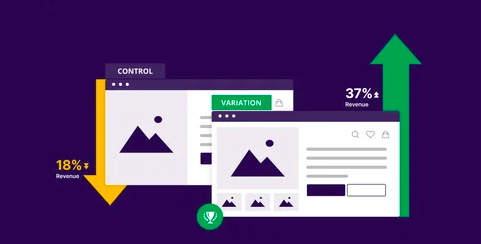Residential proxies are proxy servers that use an IP address that is associated with a physical location. They are called “residential” because the IP address is associated with a residence rather than a data center or a business.
Residential proxies can be used to mask a user’s true IP address and location, which is why they are often used for online activities that require a high level of anonymity. Such as web scraping or bypassing geographic restrictions on content.
Residential proxies allow their users to access content that is restricted based on location or to scrape websites without being detected. In this article, we will be looking at how residential proxies work and the techniques for using them to skyrocket our workflow.
How Residential Proxies Work
A user connects to the internet through their device and sends a request to a website or service.
The request is forwarded to a residential proxy server, which acts as an intermediary between the user’s device and the destination website or service. The residential proxy then works in the following ways.
- The residential proxy server assigns the user a temporary new IP address that is associated with a physical location, such as a home or an office. This is typically the location of the proxy server itself.
- The residential proxy server then sends the request on behalf of the user using the new IP address.
- The destination website or online service receives the request. It sees the IP address of the residential proxy server, not the user’s actual IP address. It then responds to the request, believing it is coming from the location associated with the new IP address.
- The website or online service processes the request and sends a response back through the residential proxy server. The residential proxy server receives the response. And then forwards it back to the user’s device, completing the connection.
This process allows the user to remain anonymous and makes it difficult for websites or online services to track their activity.
Another reason why using residential proxies is also very attractive is because they are less likely to be detected as proxies. And so are less likely to be blocked by websites. This is because they have a more legitimate-seeming IP address, which comes from their association with a residential location rather than a data center.
Skyrocketing Your Workflow with Residential Proxies
There are several functions of residential proxies that can help in speeding up your workflow and improve productivity. Here are 4 of them;
1. Browse the Internet Quicker
Certain websites or networks can impose certain restrictions or filters. A residential proxy can help you bypass those restrictions and access the content you seek more quickly. Also, by masking your IP address, Using a viable residential proxy can potentially improve your internet speed.
It does this by reducing the amount of tracking and data collection that occurs as you browse the web. If you are accessing content that is hosted on a server that is located far away from your location, it can take longer for that content to be delivered to your device.
Using a residential proxy that is located closer to the content can potentially reduce the distance between you and the content. This can improve the speed at which it is delivered to you.
All of this helps to skyrocket your workflow by allowing you to browse the internet with greater speed.
2. Access Resources Easier
Using residential proxies allows you to have access to resources that would otherwise be restricted. Also, trying to access a website or other resource that is only available in certain regions can be difficult. However, you can use a rotating residential proxy with an IP address from that region to bypass the restrictions.
Some websites or resources may block certain IP addresses if they detect unusual or suspicious activity. By using a viable residential proxy, you can avoid having your IP address banned and continue to access the resources that you need for work.
3. Gather Data Faster
Websites often have measures in place to detect and block scraping activity. By using residential proxies, you can reduce the risk of being detected. Because the IP addresses are less likely to be identified as being used for scraping. This allows you to scrape websites and gather data that you need without being detected.
Residential proxies also help in Increasing the speed of requests. Some websites may limit the number of requests that can be made from a single IP address in a given period. By using residential proxies, you can make more requests in a shorter time.
This is because residential proxies allow you to use multiple IP addresses that are associated with different locations. So you can send multiple requests for information at the same time. This makes your work faster and allows you to gather data seamlessly.
4. Leverage Social Media
Using social media effectively can sometimes require you to manage multiple accounts. However, Many social media platforms have strict rules against using multiple accounts from the same IP address. By using a rotating residential proxy for each account, you can avoid violating these rules. And you can avoid potentially getting your accounts banned.
Also, using a residential proxy can make it easier to manage these multiple accounts at the same time. For example, you can use a different browser or device for each account and connect through a different proxy for each one. This can make it easier to keep track of your accounts and manage them more effectively.
Conclusion
Residential proxies can be a useful tool for speeding up your workflow in a variety of scenarios. By routing your internet traffic through a residential IP address, you can bypass local internet service provider (ISP) throttling.
You can avoid website blocks and restrictions and access geographically restricted content.
Residential proxies are also less likely to be detected and blocked by websites. This makes them a more reliable option for tasks such as web scraping and data mining.
It is important to choose a reputable residential proxy provider. This ensures that you are getting high-quality, reliable service. Overall, residential proxies can be a valuable addition to your toolkit. It is, however, important to carefully consider your needs and options before choosing a solution.































